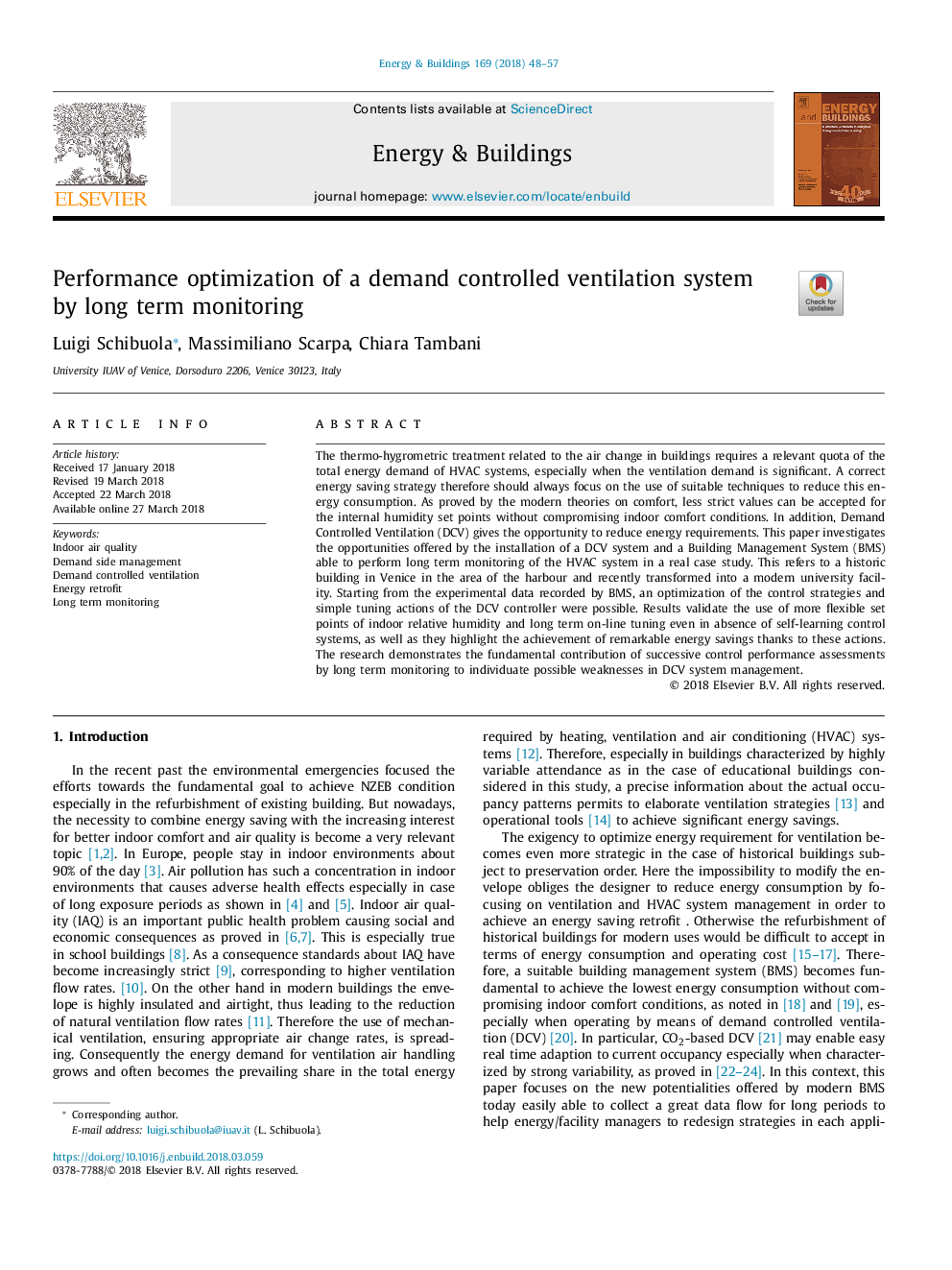ترجمه فارسی عنوان مقاله
بهینه سازی عملکرد یک سیستم کنترل تهویه تقاضا با نظارت طولانی مدت
عنوان انگلیسی
Performance optimization of a demand controlled ventilation system by long term monitoring
| کد مقاله | سال انتشار | تعداد صفحات مقاله انگلیسی |
|---|---|---|
| 95451 | 2018 | 10 صفحه PDF |
منبع

Publisher : Elsevier - Science Direct (الزویر - ساینس دایرکت)
Journal : Energy and Buildings, Volume 169, 15 June 2018, Pages 48-57
ترجمه کلمات کلیدی
کیفیت هوا داخل مدیریت سمت تقاضا، تهویه مورد نیاز تهویه مطبوع، تکمیل انرژی، نظارت بلند مدت،
کلمات کلیدی انگلیسی
Indoor air quality; Demand side management; Demand controlled ventilation; Energy retrofit; Long term monitoring;

